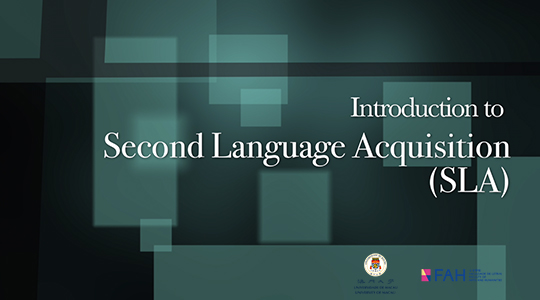
当前课程知识点:Research Methods in Tourism Studies > Week 2 Qualitative versus Quantitative Approach > 2.4 Research Example: Social Tourism > 2.4.1 What is social tourism?
返回《Research Methods in Tourism Studies》慕课在线视频课程列表
返回《Research Methods in Tourism Studies》慕课在线视频列表
你好,我叫Scott McCabe
我是英国诺丁汉大学商学院
营销学和旅游学系的教授
我今天在这里与大家讨论社会旅游的研究和实践
什么是社会旅游
社会旅游是指,包括社会所有成员的旅游业
它与其他概念有关 包括全民旅游
我们通常的看法是
全民旅游将残疾人也考虑在内
因为残疾人在参加旅游活动时可能面临一些限制
可能面临一些限制
社会旅游与全民旅游都息息相关
但它本身就是一个独特的类别
社会旅游业认识到社会所有成员在获得
休闲旅行机会方面存在不平等
这意味着 在每个社会中 无论是富裕国家还是贫穷国家
都有一些人或多或少地有能力参加旅游机会
很多人,体会到参加旅游活动的阻碍
最重要的因素是缺乏参与旅游活动所需的可用资源
这意味着人们只是没有足够的经济能力来负担假期
这确实与贫穷有关
那么社会旅游发展的背景是什么
首先要意识到的是这不是一个新概念
从旅游业发展的早期开始就存在
实际上,托马斯·库克组织的第一次旅游活动可以定义为社会旅游
因为旅行是出于社交需求
而且价格便宜 每个人都负担得起
这些只是在英国东中部地区的本地旅行
这就是托马斯·库克的家乡
托马斯·库克希望能让人们从城市逃脱出来
并体验乡村或其他地方的生活
因此 这根本不是一个新概念
海因斯对比了旅游业的特征和旅游业
作为社会力量的特征
从产业角度来看 其特征在于旅游业的产业过程
大规模旅游业的发展 私营部门的利益以及旅游市场体系
但是我们也可以将旅游业视为一种社会力量
它由社会需求和关怀 社会福利和社会正义驱动
它试图确保分支广泛的旅游业各阶层的利益
包括对环境的利益
那么社会旅游发展的背景是什么
好吧 我们可以追溯到十九世纪下半叶
正好是在英联邦国家和其他西欧国家的
大众旅游
社会运动和工业化进程的兴起之初
我们可以看到 有一些社会运动和健康计划试图
改善居住在城市中的人们的健康状况
当然 在20世纪初出现了
青年运动和度假营
在1930年代 国际劳工组织引入了带薪假期
这一在工人休假时同样支付薪资的制度
这使工人在空闲时间能从工作中解脱出来
然后 在1948年 发布了《人权宣言》
它真正赋予人们工作之外的休息和休闲时间以及行动自由的权利
在1950年代之后 成立了国际社会旅游组织等机构
这些机构从比利时和法国的讲法语的国家诞生
原型是是国际旅游局旨在促进所有人享有假期的权利
旨在促进所有人享有假期的权利
那么我们如何定义社会旅游呢
社会旅游有许多不同的定义 这些定义起源于法语
首先 Haulot定义社会旅游是指,在旅游领域中
由经济上较弱的人或社会中处于弱势地位的人
参与旅游而产生的各种现象和关系
要素指的主要是人
随后 社会旅游有了许多不同的定义
而这本书是由我本人和
Diekmann Minnaert最新的进展——《欧洲的社会旅游:理论与实践》
在这本书里里 我们描述了旅游领域中
其他处于不利地位和被排斥的群体纳入旅游业
而产生的的所有活动 关系和现象
我们在这里所说的是 通过金融或其他具有明确社会性质的干预措施
可以将这些群体纳入旅游业
这实际上意味着社会旅游可以与其他形式的旅游区分开
因为它涉及某种类型的干预
无论是允许人们参与的补贴
还是其他信息或其他类型的要求
因此 这使社会旅游与其他形式的旅游截然不同
那么谁受到贫困和社会排斥的影响呢
都有许多群体经常受到影响
不管我们在谈论哪个国家
因为社会排斥和物质是剥夺
这在某些类型的群体中很常见
首先 我们有低收入家庭
这些家庭仅靠很少的钱生活
没有多少可支配收入
而当您处于贫困状态时
家庭预算或可随意支配第一件事减少的可能就是假期
其次 还有一些家庭有一位甚至多为残疾人士
研究表明
有残障人士的家庭更容易出现贫困和低收入
当然 还有单亲家庭.
这些家庭经历了家庭破裂
一位成年人独自照顾家庭中的孩子
这意味着他们的收入要低得多 也更有可能以低收入为生
另外 还有老年人
随着年龄的增长 人们变得更容易遭受某种形式的损害
因此 老年人更可能贫穷并且生活在某种残疾中
这可能会影响他们的出行能力
还有一些孩子住在低收入家庭
因此,他们与其他低收入家庭,单亲家庭
或社会上孤立的人
也许他们生活在很小的社区和农村地区
无法获得我们习惯的城市中的所有服务
当然 有些人行动不便
不一定只是残障或残障
而是有其他方式很难走动
以上就是关于社会旅游的定义
-1.1 Research Question and Research Objectives
--1.1.1 Student interview before class
--1.1.2 The starting point: question
--1.1.3 What is a good research question?
--1.1.4 Ways to find a good research question
-1.2 Title Design
--Acticle: Leisure & Travel as Class Signifier: Distinction Practices of China's New Rich
--Discussion: Why do we research?
-1.3 Literature Retrieval Method and Literature Databases
--1.3.1 Common literature retrieval method
--1.3.2 Common literature search database
-1.4 Information Collection and Academic Journals in Tourism
--1.4.1 Academic journals in tourism research
--1.4.2 Literature collection methods and principles
-1.5 Literature Reading
--1.5.2 Overcoming obstacles in literature reading
--Week 1 quiz
--Discussion: What difficulties have you encountered in reading literature?
-2.1 Philosophical Bases of the Two Approaches
--2.1.1 Philosophical bases of the two approaches
-2.2 Differences between the Two Approaches
--2.2.1 Differences between the two approaches
--Article: Does tourist–host social contact reduce perceived cultural distance?
-2.3 Be Aware of Your Own Research Views
--2.3.1 Be aware of your own research views
--Discussion: How to choose research method?
-2.4 Research Example: Social Tourism
--2.4.1 What is social tourism?
--2.4.2 Established frameworks on social tourism
--2.4.3 Major research findings on social tourism
--2.4.4 Major findings of social tourism research
--2.4.5 Opportunities and challenges for social tourism
--Week 2 quiz
- 3.1 Key Procedures in Qualitative Approach
--3.1.1 Key procedures in qualitative approach
-3.2 Qualitative Data Collection and Analysis
--3.2.1 Key procedures and data collection methods in qualitative approach
--3.2.2 Data collection and analysis in qualitative approach
--3.2.3 Data analysis in qualitative approach
-3.3 Case Study and Content Analysis
--Discussion: Have you ever used a qualitative approach in your research?
-3.4 Using Coding and Themes in Qualitative Research
--3.4.1 Using coding and themes in qualitative research(1)
--3.4.2 Using coding and themes in qualitative research(2)
-3.5 Using Conceptual Framework in Qualitative Research
--3.5.1 Using conceptual framework in qualitative research(1)
--3.5.2 Using conceptual framework in qualitative research(2)
--Article: Tourist typology in social contact: an addition to existing theories
--Week 3 quiz
--Discussion: How to ensure the reliability and validity of qualitative study?
-4.1 Using Questionnaires in Quantitative Research
--4.1.1 Make an effective literature review and research method design
--4.1.2 Learn to write powerful findings and discussion
-4.2 Using Experiment in Quantitative Research
--4.2.4 Eye tracking experiment
-4.3 Using Mixed Method
--4.3.1 Sustainabble tourism development (1)
--4.3.2 Sustainabble tourism development (2)
--Article:Creating a scale for assessing socially sustainable tourism
--Week 4 Quiz
--Discussion: How to use quantitative methods to study tourists' reaction?
-5.1 Current Research Priorities
--5.1 1 A review of hospitality research
--5.1.2 Impact of information technology on hospitality and tourism research
-5.2 Multi-Level/ Multiple Sources of Date Collection
--5.2.1 Experimental design (1)
--5.2.2 Experimental design (2)
--5.2.3 Multi-level/multiple sources of data collection
-5.3 Mixed Method and Interdisciplinary Research
--5.3.2 Interdisciplinary research
--Article: The meanings of destination: a Q method approach
--Discussion: Can you talk about your understanding of research methods?
-5.4 Using Delphi Method in Research Design
--5.4.1 What is the Delphi method?
--5.4.3 Characteristics of the Delphi method
--5.4.4 Predicting the future of wine tourism
--Week 5 quiz
--Discussion: Philosophical basis of research methods
-6.1 Journal Publication
--6.1.1 How to publish in the top journals? (1)
--6.1.2 How to publish in the top journals? (2)
--6.1.3 How to publish in the top journals? (3)
--6.1.4 How to publish in the top journals? (4)
--Article: Analyzing the economic sustainability of tourism development: evidence from Hong Kong
-6.2 Academic Ethics
--6.2.2 Student interview after class
--Week 6 quiz
--Discussion: Academic publication and academic ethics
--Final quiz

